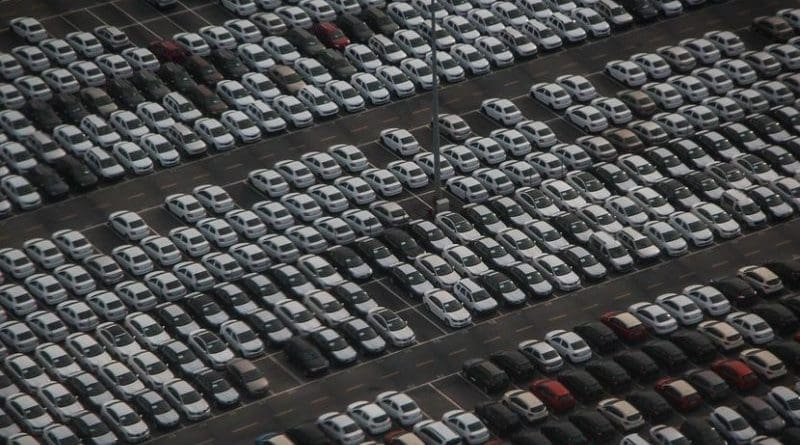EU Could Retaliate If US Adopts Fresh Car Tariffs
By EurActiv
By Jorge Valero
(EurActiv) — The European Commission adopted on Friday (18 January) negotiating mandates to eliminate tariffs in all industrial goods, including cars, with the US, but also warned that the preparations to retaliate are “very well advanced” if Washington decides to slap fresh duties on European automobiles.
One of the mandates adopted today will remove tariffs on industrial goods that are already very low, an average 4.2% for goods exported to the EU and 3.1% to the US. But Trade Commissioner Cecilia Malmström explained that, given the huge size of the transatlantic trade volume, it would be beneficial for companies on both sides of the Atlantic.
Another mandate will help to remove non-tariff barriers by facilitating the reporting of technical requirements to export goods.
Malmström said the mandate includes vehicles, one of Trump´s main complaints when he criticizes European tariffs.
“We are prepared to put our vehicle tariffs on the negotiating tables as part of a broader agreement, if the US agrees to work together toward zero tariffs for all industrial goods”.
She said that if there are sensitive products like pick-up trucks, “I am sure that negotiators can find a solution”.
“We believe that a balanced, mutually beneficial agreement with the US can be reached and then we will include this sector,” she said referring to the automotive industry.
The mandates to progress on the trade discussion with the US were adopted although Trump could be leaning towards imposing new car tariffs on European manufacturers.
The chair of the US Senate finance committee, Chuck Grassley, told reporters this week that Trump is “inclined” to slap fresh duties against the Europeans unless he wins access for US agricultural products.
Malmström said the senator’s remarks were “unfortunate”.
“The remarks don’t create a “good atmosphere for negotiating”, she said. “We have been very fair and transparent and totally consistent since the 26 of July”, when Trump and Commission chief Jean-Claude Juncker launched the trade dialogue.
Ready to retaliate
But she warned that if Trump decides to punish the Europeans, “we are very advanced in our internal preparations” to retaliate.
“Should that happen, we are ready, it would have a very damaging effect on the negotiations”.
The US Department of Commerce is expected to publish by mid-February its conclusions on whether car imports represent a threat to national security. The report will be the first step in the process to adopt the tariffs.
The Swedish Commissioner insisted that the EU would not include agricultural products in the negotiations and recalled that it was left aside in the joint statement agreed by Juncker and Trump last July.
Juncker’s agreement with Trump served to find a way out of the looming tariffs on the car sector that could amount to €40 billion.
The Commission had said that it would not negotiate at gunpoint with Trump and argued that the dialogue was only a scoping exercise.
But the adoption of the mandates, which need to be ratified by the member states, would trigger formal negotiations with the US, while the tariffs on steel and aluminium and on Spanish black olives remain in place.
Senator Grassley, a close ally of the US president who met with Malmström in Washington, said that Trump sees slapping tariffs as an “effective tool” to negotiate.
Malmström insisted on Friday that the EU considers the steel tariffs “deeply unjustified” and recalled that Europe adopted countermeasures.
She added that she has been discussing this issue with the US but “so far, there hasn’t been any success”.

